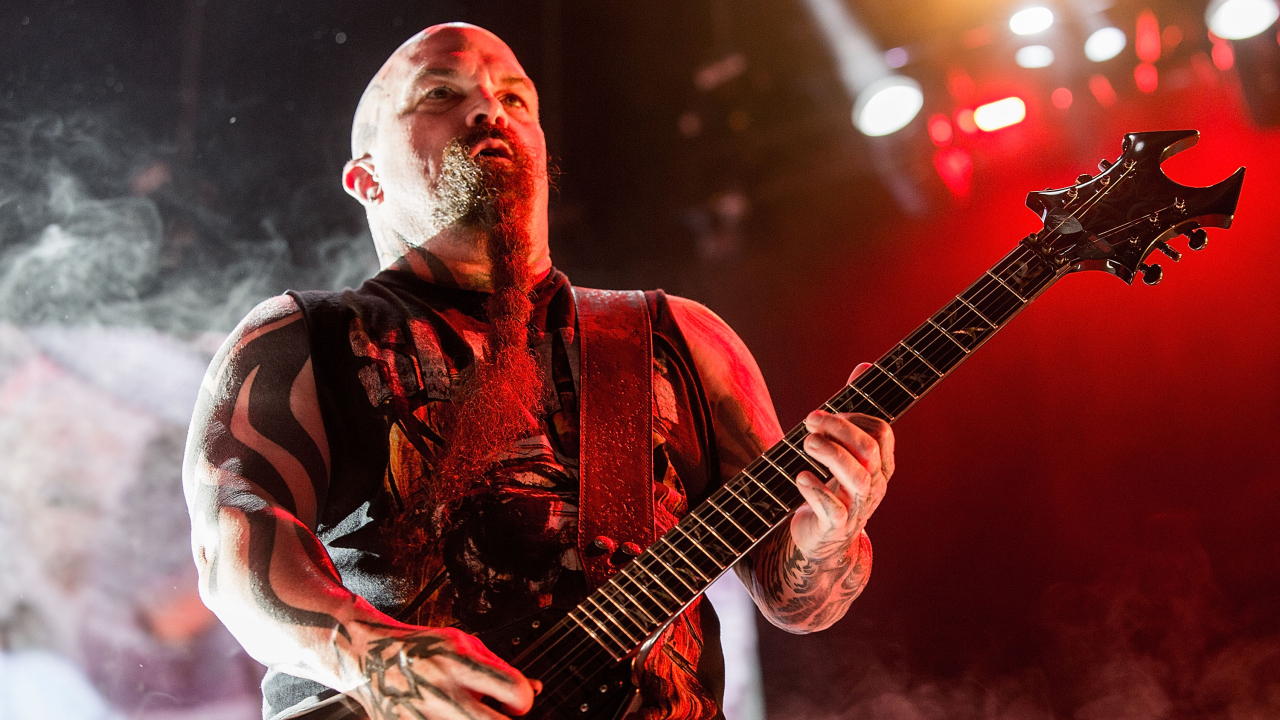Theme of the week in metal seemed to be: middle-aged men passing judgement on the modern rock scene, and coming off just a little like the old guys who were appalled by heavy metal in the ‘80s and used to lament “Whatever happened to tunes you could whistle?” The week began with Kerry King moaning to LA Weekly about the lack of inspirational guitarists in modern metal: “During the decade before Slayer, and decade after, there were guitar heroes. Ted Nugent, Eddie Van Halen, Randy Rhoads, Dave Murray, Glenn Tipton, Tony Iommi. Later on, there was Yngwie Malmsteen. You had guys in the ‘90s like Zakk Wylde and Dimebag Darrell – people that you would aspire to be.” He mentions seeing an unnamed band live at a festival in South America and being profoundly unimpressed: “I just did not get why this band was popular at all… they were the most boring and lethargic guitar players I had ever seen. I would never want to be these guys. I’m looking at a lot of these bands and it looks like it’s the road crew sound checking to me. There’s no vibe. There’s nothing that gives you aspirations to be awesome.”
Metallica’s manager Peter Mensch concurs with King’s bewildered assessment, bemoaning the lack of “quality new hard rock bands” to that noted wellspring of cutting-edge metal, Radio 4’s Today programme. The co-owner of talent management company Q Prime, whose clients include Jimmy Page, Def Leppard and Red Hot Chili Peppers, continued: “The problem is, and we ask this all the time, where is the new Metallica? Please, anybody out there that’s in a hard rock band under the age of 25, call me. We need you.”
Mensch conceded that it’s harder for new bands to succeed when it’s so easy for kids to sift through so much and cherry-pick one song to download: “It’s way more difficult. Nowadays you may not care about going to a concert or mucking around in the rain at Glastonbury to see them due to one song that you now own. So my job is to convince you that the band that I’m interested in promoting is an album band, a band of your life. The biggest problem with the new record business is I don’t know who the fans are. Fans are the people who will actually pay for something, pay for a ticket.”
Mensch compares this situation to the good old days when he knew who his clients’ fans were; largely, it seems, a homogenous mass of unflattering stereotypes. “Hard rock used to appeal, essentially, to your average 15-year-old male. He had bad skin, he didn’t like his parents, girls didn’t like him, and he was an angry kid – he was frustrated.” And who could blame him, when he was being judged with such cynical generalities?
Meanwhile, Slash was busy arguing that the music industry has lost its radical, rebellious impulse. “I think the music business itself sucks,” the guitarist told RadioNova. “It’s turned very corporate, materialistic. Even artists are trying to conform to the record industry now. It used to be… there was a conflict of interest between the creative artist and the record company wanting to make a lot of money, and eventually they’d sort of work it out. Because then, they used to develop artists, and now it’s just like Top 40 – everybody’s trying to be Top 40. Even heavy metal bands are trying to be Top 40. So it’s not a big turn-on, like it was for me in the ‘60s and ‘70s and ‘80s where it was exciting and there was a sense of rebellion and whatever… For new artists it’s really hard, and even if you have a good band, it’s like if you don’t have a Top 40 success on your first single, you’re done. And in order to get Top 40 success on your first single, you have to make compromises for your material for the record business itself.”

